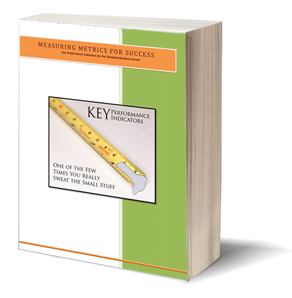What’s the most effective tool in your possession when it comes to advertising? Is it your slick, clever TV commercials? A cutting-edge CRM? Your website? What are your marketing power words?
What would you say if I told you that the most powerful tool you have at your disposal is also the simplest and most cost-effective?
It’s the words that you use.
I’m not talking about just any words. I mean the kind of power words that evoke emotion and compel your audience to act.
What are “Power Words” and Why do They Work so Well?
Here are two sentences. Which one do you find more compelling?
“Sale on men’s shoes.”
“Shop now for deep discounts on men’s trainers.”
Both of these sentences say essentially the same thing. However, the second will probably inspire more people to act. For one thing, it’s more descriptive and targeted toward a specific audience segment: people who are in the market for men’s athletic shoes and want to save money. It also uses action words that direct the potential customer on what the advertisement wants them to do and when: If you want this discount, you should shop now.
As a writer and digital marketer, I choose my words carefully because I know the impact that word choice has on the reader. There’s a psychology behind language that taps into whatever associations a given reader experiences when they encounter certain words and phrases, even if previous exposure was passive and buried in their subconscious.
These associations can run so deep and be so strongly felt that some words now come with a trigger warning.
But, the point of marketing isn’t to reinforce negative associations. It’s to raise brand awareness and sell products by creating positive associations between the product and its intended audience.
Adjectives like “fast”, “immediate”, or “instant” add a sense of urgency or timeliness to content. When you throw in words like “soft”, “warm”, and “nourishing”, you invoke feelings of comfort or well-being. Calling something new or improved tells people that they’re getting added value with their purchase.
In marketing psychology, creators conduct research to obtain information about how consumers think, and how their thoughts and emotions influence their behavior. This information then affects everything from decisions about the color and design of a logo to which words are used in headlines, subject lines, captions, and the body of content itself.
No matter what medium or method you use in marketing, word choice is at the foundation of everything. Even the choice of words used in alt-text and SEO influences how your content is evaluated and ranked by search engines.
By learning the psychology behind marketing power words, you can tap into their persuasive abilities and leverage your content to make an emotional connection with your audience. Careful word selection also helps to raise awareness and instill trust in your brand.
5 Most Effective Ways to Incorporate Power Words Into Your Advertising
1. Know Your Audience
Researchers from the University of Pennsylvania conducted a study where they analyzed more than 700 million words culled from the social media posts of 75,000 volunteers. Using word choice alone, the researchers were able to identify the gender of the writer 92 percent of the time and guess their age to within three years, 50 percent of the time.
How can you use this information to your advantage?
When you know your audience, you’re better able to connect by meeting them on their level using language that’s familiar and relatable. However, you need to understand these terms and use them in their proper context if you want them to come off as authentic rather than tone deaf or pandering.
2. Compel Action
Some of the most effective power words used in marketing are present-tense, action verbs. They convey a sense of immediacy while also providing a direct call to action. Lacking this type of specific verbal direction is one of the main reasons people aren’t clicking on your links, subscribing to your newsletter, or opening your emails.
The human brain is hard-wired to react to words that compel them to act. If you tell someone to run, few will stop to ask questions. They’ll assume danger is at hand and they’d better move it or lose it.
Sprinkle your content, headlines, and CTAs with simple, direct action verbs that inform the reader in no uncertain terms how they should proceed. Avoid words that are weak or in ways that connotate indecision, such as “might” or “maybe”.
3. Elicit Emotion
There’s no doubt about it, connecting with readers on an emotional level will create a subconscious bond, a link, between their emotions and your brand. The most effective advertising stirs feelings of love, longing, nostalgia, and other positive emotions. Even anger is a strong motivator when you use it in a manner that incites positive action.
4. Foster FOMO
No one wants to feel that an opportunity is passing them by. Use words that impart scarcity or urgency to foster fear of missing out. This can be done by setting a deadline or adding limits.
How fast would you act if you knew that there were only two of an item left or that the price will increase in three days?
This can be flipped on its head by insinuating that the customer will lose something if they don’t act by a certain date or highlighting how much they’ve benefited from a free trial just before it expires
5. Draw Associations
When terms become familiar, they create subconscious associations in our mind. For example, the word “blue” is often linked in our heads with words like “sky” or “berry”. Create personal associations by using the word “you” to speak directly to the audience. Using “we” connotates togetherness and unity. Cluster related words or short phrases together in lists for easier retention.
Want to grab your audience’s attention fast? Use familiar words in surprising ways to create new associations that are specific to your brand.
Pro tip: Don’t use words just for the sake of using them. Make sure that the words you choose are appropriate to the context and purpose. Avoid being unnecessarily verbose, flowery, or convoluted. Be direct and to the point.
Final Thoughts
Remember when teachers or parents told you to “use your words”? When it comes to marketing, using the right words in the proper context can make a big difference in your ability to convert leads to loyal customers.
Professional marketers learn through research and experience how marketing power words andchoice in advertising impacts an audience. If you need help with your content strategy, talk to a marketing consultant from Level343 today.







































